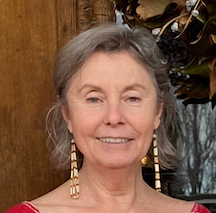by Prajna
About 25 years ago, I attended a daylong workshop on Compassion with Christina Feldman, a teacher from England. Although she teaches in the Buddhist tradition of mindfulness, Christina’s first Buddhist teachers had been from the Tibetan school, and the compassion practice she taught that day was from their tradition.
I don’t remember many details from the workshop, but I remember that for a whole day we listened to her teaching on the importance of compassion and we recited very simple phrases. Just as with traditional loving kindness practice, we started by bringing to mind someone we have real, uncomplicated appreciation for, a benefactor figure, then moving on to a friend, then to ourselves, on to a neutral person, and then a difficult person. We began the morning with a benefactor.
“Picture them old. Picture them sick. Picture them dying.”
That’s what I remember, because that’s what we did all day. We pictured people we held in gratitude and esteem, old, sick, dying. At some point we moved on to a dear friend. We pictured them old, we pictured them sick, we pictured them dying.
What arose in that day was a big ocean of compassion. Christina is an inspiring teacher, and the way she held that energy allowed us to do something that was really very difficult. We all know that we’re subject to sickness, old age and death, but we certainly don’t like to think about it. To sit with it soberly, with our hearts open, was asking a lot of ourselves. The day went on, contained and serious, meditating, listening to teachings and moving on to picture ourselves old, sick and dying, then to picture someone who we felt neutral about old, sick and dying. Finally at the end of the day, we chose a difficult person.
I chose someone who had really been kind of horrible to me for a sustained amount of time in a work situation, someone who had caused quite a bit of difficulty for me. I knew that she was in a bad home situation, being hit by her partner, and that she was not at the top of the heap at work, but she had been in a more valued position than I was in that heap and had made a part of my life very unpleasant. To even hold her in my heart was strained, but there we were, a room of a hundred or more people on a gray weekend, picturing people old, sick and dying, and once I’d done that with the difficult person, any hard feelings I’d held onto for her were well and truly gone.
Forgiveness and compassion ask us to remember that, whatever someone has done, they’re still a creature pretty much like us, subject to old age, sickness and death. The Catholic church has a view I like to recall, although I’m probably paraphrasing incorrectly, ‘You may not be able to forgive the sin, but forgive the sinner.”
When the workshop finished, at the end of an eight hour day, as I staggered out to the parking lot, I was actually talking to myself. I had worked very hard, opening to things I would have normally avoided and resisted. I was exhausted and I was very grateful for Christina’s teaching.
I saw my difficult person one more time. I said hello to her in a book store not long after the workshop and didn’t feel anything but a big clarity and the quiet knowing of it. But a few months after that, when someone told me that my former difficult person had been diagnosed with terminal cancer, my initial response was the shock and sadness you would feel for anyone, followed by a huge welling up of gratitude for the fact that I didn’t bear her any ill will.
It was a big lesson for me. We don’t forgive necessarily for the sake of the person who hurt us. We forgive for our own sake and for the world’s. And the world includes that person.
I only pull those particular compassion phrases out now on special occasion, for when I really need them, if my heart doesn’t want to budge. But I’ve worked frequently with formal forgiveness phrases since that time. I don’t remember exactly where they came from in the Buddhist tradition, but here they are. I sometimes will start a meditation with them. They’ve been valuable to me.
If anyone has hurt me,
Advertently or inadvertently, by thought, word or deed,
May I forgive them now, to the full extent that I am able.
And if I’m unable to forgive, or to forgive completely,
May it be my intention, my desire, to do so,
For my benefit, for their benefit, and for the benefit of all beings.
And if I have ever hurt anyone,
Advertently or inadvertently, by thought, word or deed,
I humbly ask their forgiveness now, to the full extent that they are able.
And if they’re unable to forgive, or to forgive completely,
May it be their intention, their desire, to do so,
For their benefit, for my benefit, and for the benefit of all beings.


